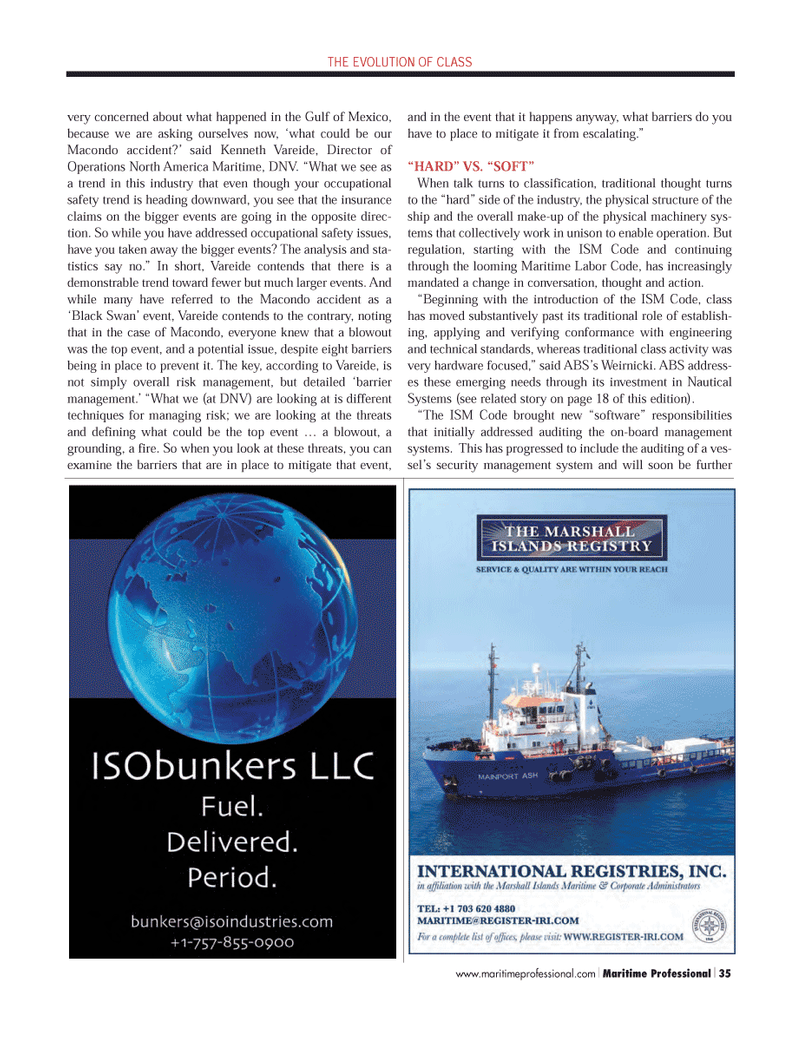
Page 35: of Maritime Logistics Professional Magazine (Q4 2011)
Classification
Read this page in Pdf, Flash or Html5 edition of Q4 2011 Maritime Logistics Professional Magazine
THE EVOLUTION OF CLASS very concerned about what happened in the Gulf of Mexico, because we are asking ourselves now, ?what could be our Macondo accident?? said Kenneth Vareide, Director of Operations North America Maritime, DNV. ?What we see as a trend in this industry that even though your occupational safety trend is heading downward, you see that the insurance claims on the bigger events are going in the opposite direc- tion. So while you have addressed occupational safety issues, have you taken away the bigger events? The analysis and sta- tistics say no.? In short, Vareide contends that there is a demonstrable trend toward fewer but much larger events. And while many have referred to the Macondo accident as a ?Black Swan? event, Vareide contends to the contrary, noting that in the case of Macondo, everyone knew that a blowout was the top event, and a potential issue, despite eight barriers being in place to prevent it. The key, according to Vareide, is not simply overall risk management, but detailed ?barrier management.? ?What we (at DNV) are looking at is different techniques for managing risk; we are looking at the threatsand defining what could be the top event ? a blowout, a grounding, a fire. So when you look at these threats, you can examine the barriers that are in place to mitigate that event, and in the event that it happens anyway, what barriers do you have to place to mitigate it from escalating.? ?HARD? VS. ?SOFT? When talk turns to classification, traditional thought turns to the ?hard? side of the industry, the physical structure of theship and the overall make-up of the physical machinery sys- tems that collectively work in unison to enable operation. But regulation, starting with the ISM Code and continuing through the looming Maritime Labor Code, has increasinglymandated a change in conversation, thought and action. ?Beginning with the introduction of the ISM Code, class has moved substantively past its traditional role of establish- ing, applying and verifying conformance with engineering and technical standards, whereas traditional class activity was very hardware focused,? said ABS?s Weirnicki. ABS address- es these emerging needs through its investment in Nautical Systems (see related story on page 18 of this edition).?The ISM Code brought new ?software? responsibilities that initially addressed auditing the on-board managementsystems. This has progressed to include the auditing of a ves- sel?s security management system and will soon be further www.maritimeprofessional.com Maritime Professional 35 MP #4 (34-49):MP Layouts 11/8/2011 1:59 PM Page 35

 34
34

 36
36
